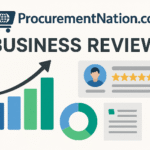Introduction
Businesses hold a significant role in policy formulation that affects the community, society, and the economy at large. As the primary drivers of economic growth and development, businesses hold a massive interest in policy formulation in the government across all levels. Businesses draw their authority from their ability to create jobs and revenues to governments through taxation.
Apart from this, businesses also have an interest in policy on trade regulation, labor laws, environmental conservation policy, policy on consumer protection, etc. These policies directly influence the firms’ performance and profitability. Accordingly, they will lobby for the policies that favor them.
Why Businesses Influence Policy Making
There are several reasons why businesses hold influence in the policy-making process:
- Economic Effect: As stated earlier, companies play an important economic effect on society. They generate work and assist in the creation of revenues, and therefore they form the core in driving the economy. This hence positions them as a force to be accounted for when enacting legislation affecting their bottom line as well as business.
- Financial Resources: Most of the time, business corporations possess great financial resources to devote to lobbying. Such financial resources include retaining professional lobbyists, campaign political contributions, and donating to policy-influencing think tanks besides influencing public opinion as well as policymakers.
- Expertise and Knowledge: Companies also have expertise and knowledge in their company. This enables them to offer educated opinion and develop policy directly enforceable in their company.
- Access to Decision Makers: Big business enjoys direct access to government decision-makers through friends, campaign donations, and other avenues of influence. This provides them with enormous clout to shape regulation and policy.
- Public Opinion and Reputation: Public opinion and reputation are tremendous assets that a business entity owns, and they can use them to control the public opinion for or against a policy. It also identifies how policymakers perceive and react to issues of business.
Key Sectors That Commonly Impact Polic
One of the most influential industries with a propensity to determine policy making are the energy sector, pharmaceutical sector, technology sector, and the financial services sector. The energy sector influences environment law and policy of energy production. The pharmaceutical sector influences healthcare regulation and policy. The technology sector has a propensity to determine data protection, cybersecurity, and intellectual property rights policy. And the financial services sector has a significant influence on banking and financial regulation policy.
Other sectors that are actually capable of affecting policy making are the agriculture, transport, and communications sectors. These sectors also have the capability to employ their resources and lobbying to make policies that are directly influencing their business operations. In general terms, it is important to recognize the ability of different sectors to influence policy making for those and institutions looking to shape or realign with rules.
Understanding the Role of Technology in Policy Making

Policy and rule-making has also been driven by technology over the last few decades. Digital technology also brings new opportunity with new risk, and governments have had to develop policies on data protection, cybersecurity, and AI with others in the works. Communications technology advances have also enabled information to be transmitted and disseminated rapidly, and policymaking processes are more efficient.
A good example of the influence of technology on policy-making is the General Data Protection Regulation (GDPR) of 2018 by the European Union. The regulation has strict policies about the manner in which companies acquire, store, and handle individual data of the citizens of EU since there is more vigilance towards privacy and misuse of individual data. It also targets not just the companies that have businesses in the EU but the whole world because it gives a further layer of protection to the data.
Tools Businesses Use to Influence Policy
Companies have various tools and methods at their disposal to affect policy making. They can vary from as old-fashioned as lobbying to as new-age as social networking. Among the most widely used tools that companies use to shape policy are:
1) Lobbying
Lobbying is the process of attempting to make government officials or legislators do something that will serve your industry or company. This might involve sitting down with politicians, providing politicians with data and research, and creating relationships with decision-makers.
2) Campaign Contributions
Political contributions, or campaign contributions, are also another means through which companies attempt to shape policy making. By way of political party or candidate contributions, companies anticipate gaining favor and support for their agendas. It should be noted that political contributions are closely regulated by campaign finance laws in an attempt to stop corruption and maintain transparency.
Small and Medium Businesses: Can They Make an Impact?
While it would seem that campaign contributions are reserved for deep-pocket corporations only, small- and medium-sized businesses can enter the fray as well in the form of political contributions. In fact, according to the Small Business Administration, there are over 99% of all United States firms that consist of small business businesses and near half of the working populace is employed by these firms. That is to say that small business owners also wield tremendous influence to make their presence felt in policymaking through campaign donations.
One of the methods that small- and medium-sized enterprises can have influence is by joining forces with other like businesses to form a Political Action Committee (PAC). PACs are organizations that gather individual contributions from members and utilize those contributions to support or oppose particular candidates or causes. By joining forces with other companies that are the same as them, small business owners can have a say and influence the political landscape more.
Case Studies: When Business Changed the Rules
Other than supporting candidates or causes through PACs, firms have also been seen taking a more direct stance towards influencing policies and regulations affecting their operations. This is evident in various case studies where firms have succeeded in influencing government decisions and modifying the rules in their favor.
One good example is the case of the pharmaceutical sector’s drive to press for the signing of the Medicare Modernization Act of 2003. The act introduced prescription drug benefits to Medicare elders, which immensely helped the pharmaceutical companies as it provided them with a new market for their medications. The pharmaceutical sector channeled over $100 million in lobbying and donating to campaigns to get this bill signed.
How Government Responds to Business Pressure
Political pressure on the government from businesses has multiple possible endings, depending on circumstances and conditions. In most situations, businesses push governments too hard, leading the government to comply and, against the welfare of other participants like consumers and laborers, introduce laws and policy favorable to business. Many businesses, mostly with large interests that can pour substantial funds and wield a tremendous impact on those responsible for crafting laws and regulation, exhibit such characteristics.
But in other instances, the government can ignore business pressure and intervene to manage or control activities of businesses. This might be to address fears about public safety and health, the environment, or to save consumers from abusive practices by companies. The state is obligated to guarantee equal opportunity and stop the abuse of authority by companies.
Conclusion: What businesses can impact policy?
Last but not least, firms contribute significantly to policy formulation through their economic power and lobbying. This can lead to beneficial policies towards firms, yet it might also open the way for regulatory action by the state in the interest of public protection.
Companies should seriously consider the effects of their actions and see that responsible and ethical actions are prioritized. The government also must regulate and monitor companies in order to prevent exploitation and illegal competition.
Lastly, a balance should be achieved between striving for business growth and protecting society’s interests as a whole. Government and business should join forces to create policies that benefit them as well as the common good. Together, we can achieve a booming economy that benefits everyone.



